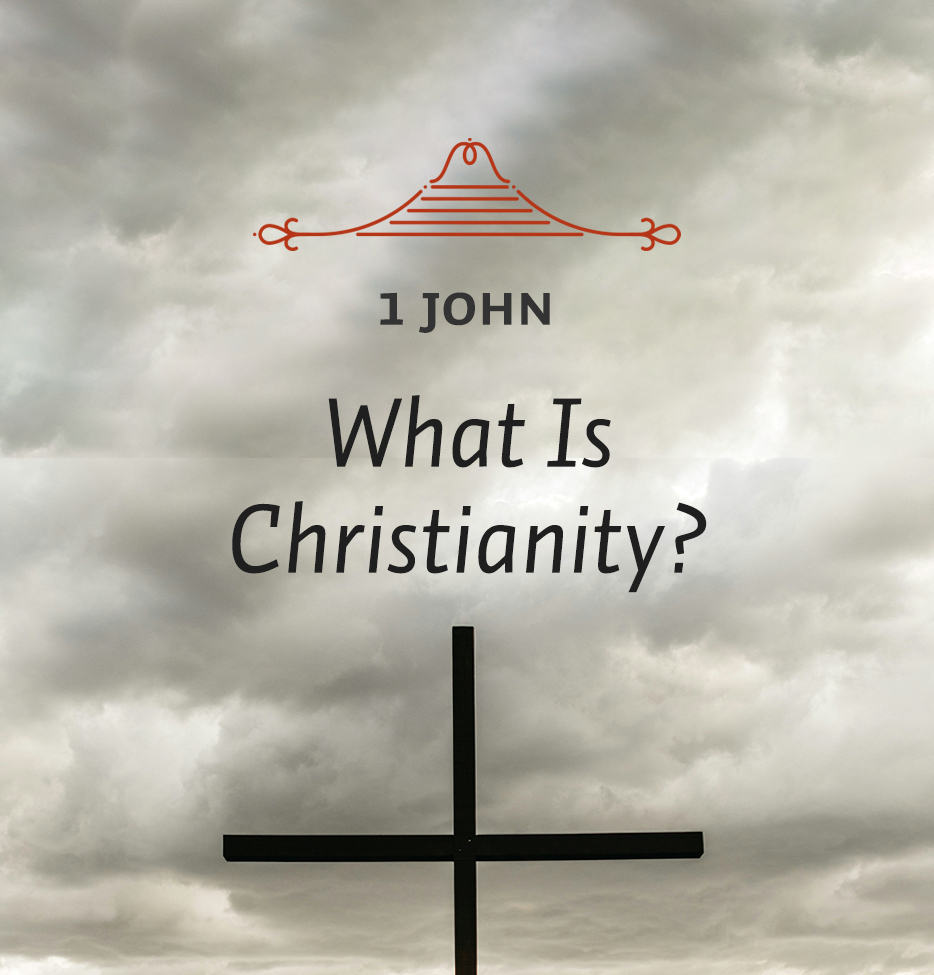A number of years ago, in preparation for a discussion period on a Christian radio program, an interviewer went onto the streets of Philadelphia to ask people this question: “What is Christianity?” The answers were surprising. Some said that Christianity was “the American way of life.” Others called it “an organization.” It was “an ethic.” One man termed Christianity “a tool used by capitalists to repress the poor.” When the interviewer tried to help the people by asking, “And who is Jesus Christ?” the answers were even more outlandish. He was called “pure essence of energy,” “a good man,” “our leader.” Many replied, “I am not sure… I just don’t know.”
The problem faced by the interviewer in Philadelphia was similar to the problem faced by the apostle John as he wrote to people in his day, although in John’s case those to whom he was writing were Christians.
In the very early days of the expansion of the Christian Church there was a large measure of agreement, if not unanimity, as to what the faith was. But in time, as various heretical movements began to appear within the Church, this initial agreement broke up in places and many normal Christians found themselves asking, “What is Christianity after all? Is belief in Jesus Christ essential to the highest form of Christianity? Is Christianity Christ? If not, what is? Or if Christ is essential to Christianity, then what precisely is one to believe about Him?” In the churches to which John wrote, these questions had grown out of a major schism caused by those whom we would today call Gnostics. These questions were intense, such as, “Who are we?” and “What is truth?” And they were fundamental. Moreover, they obviously involved questions of authority as well.
In the opening verses of his letter John meets these questions head on. Instead of what would be a customary introduction to any ancient letter (the kind of introduction normally followed by Paul, for instance) John leads off with a preface reminiscent of the prologue of the fourth Gospel. It is his answer to the Gnostics. In it he speaks of the essential core of Christianity, as well as of the twofold objective of the proclamation of it, namely, fellowship of an individual with other men and God, and Christian joy.
The most important thing that John has to say in his preface is that Christianity is Jesus Christ. Without Christ there would have been no Christianity, for Christianity began by God’s revelation of Himself in Jesus and continues by the authoritative testimony of the apostles and others to that revelation. It follows that without Christ there can be no Christianity today. “It is,” as Malcolm Muggeridge has written, “Christ or nothing.”1
Here, however, we come to the first of several technical problems in John’s letter. For we find ourselves asking at what points in the preface John actually speaks of Jesus. At first glance this seems to be easy to answer, for the phrase “the word of life” immediately makes one think of the “Word [who] was made flesh” from the prologue to John’s Gospel. Since the “Word” in the prologue is Christ, it seems that “the word” in the preface should be Christ too. In this case the phrase “of life” should be taken as a descriptive genitive, and the phrase should be understood as “the life-giving Word” or “Christ who gives life.”
1Malcolm Muggeridge, Jesus Rediscovered (Garden City, NY: Doubleday, 1969), 58.






